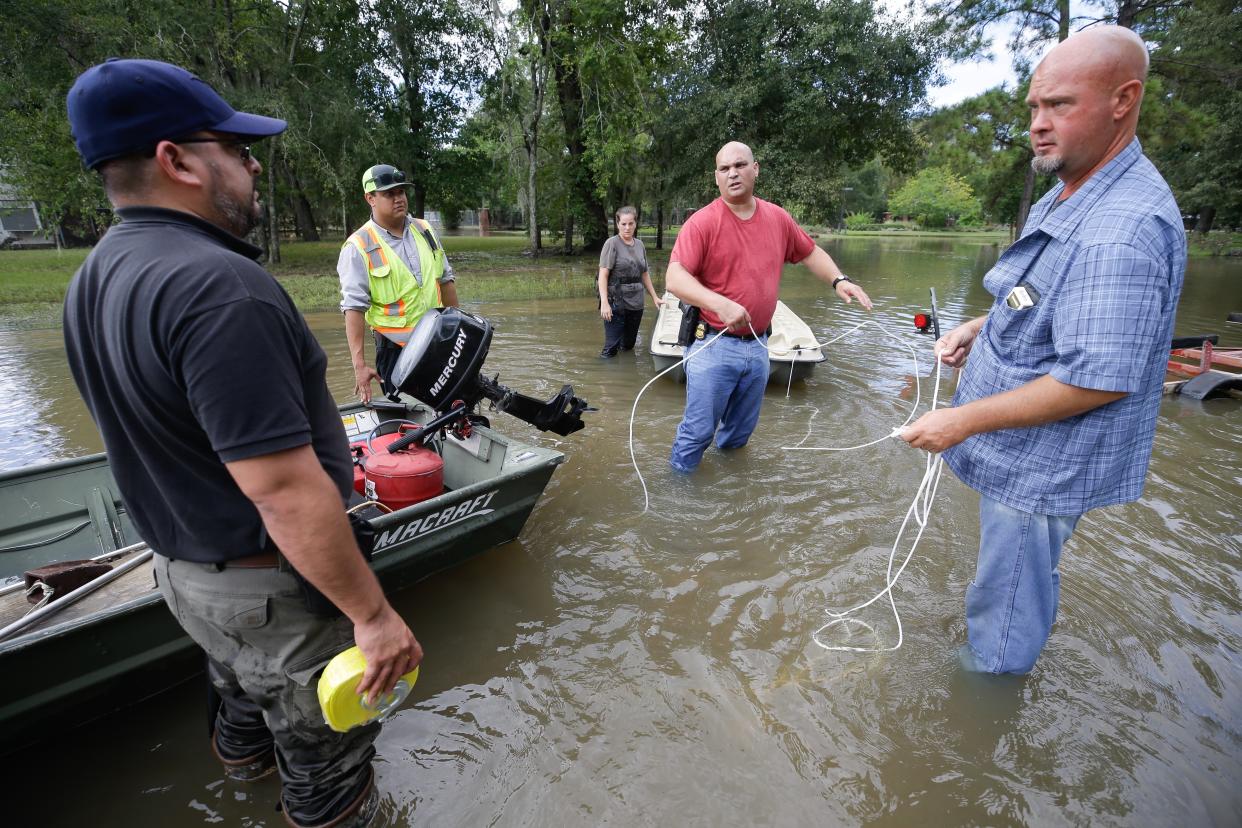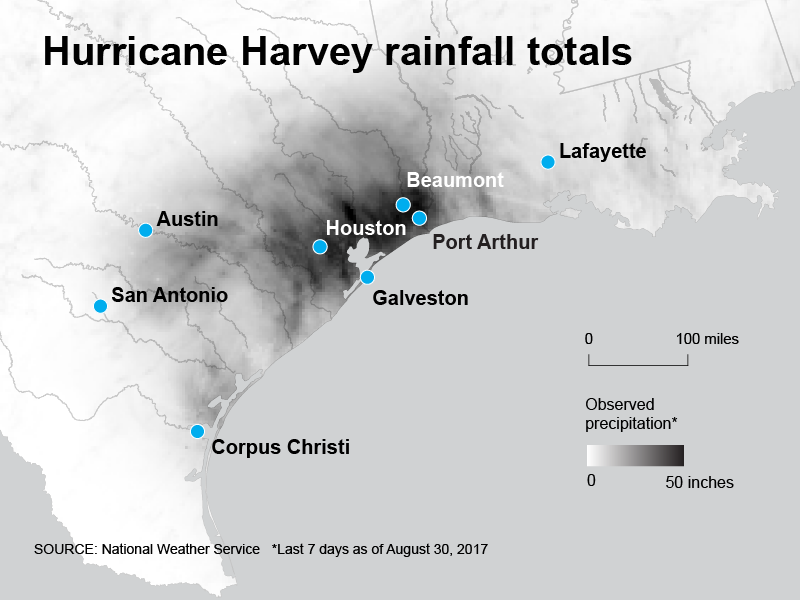'Hell and High Water' predicted in prize-winning article last year. Houston got both.

In March 2016, a team of investigative reporters from the Texas Tribune and ProPublica warned that Houston was not prepared to weather the next big hurricane. Their comprehensive project, “Hell and High Water,” carefully outlined how the fourth-largest city in the country’s infrastructure was not prepared for the next devastating storm, and stated that its leaders had taken nearly no steps to avert disaster.
The journalists were awarded a Peabody in April 2017 and the Edward R. Murrow Award for investigative reporting in June 2017 for their prescient work.
“Hell and High Water” was followed in December 2016 by “Boomtown, Flood Town,” which explains how virtually unimpeded development in the city with almost no zoning guidelines helped some people financially while increasing flood risks for everyone and why climate change will bring stronger rainstorms. It was similarly praised and awarded.
“Every year, the likelihood increases that a Katrina-like storm could bring terrible and almost certainly lethal consequences. If nothing is done to protect Houston, its current boom time may simply be the first chapter in a tragic story,” they wrote at the time.
“Hell and High Water” and “Boomtown, Flood Town” have been getting renewed attention since Tropical Storm Harvey struck Southeast Texas as a Category 4 storm over the weekend, causing immense damage and at least 20 deaths.

Kiah Collier and Neena Satija of the Texas Tribune collaborated with Al Shaw of ProPublica on both projects. Jeff Larson of ProPublica also worked on “Hell and High Water.”
“When we did that project, we heard a lot from people about rain-based flooding and problems associated with that. They were horrified, but really the biggest attention we’re getting is now, after this storm,” Collier told Yahoo News on Wednesday. “Maybe something more will happen with officials adopting smarter development practices and strengthening pushback against developers who have won politically over the decades.”
One month after “Hell and High Water” was published, Sen. John Cornyn, R-Texas, filed legislation that supports a big, proposed infrastructure project, known as the “coastal spine,” thought up by scientists at Texas A&M-Galveston. This compelled former President Barack Obama to sign a version of the bill into law to accelerate a U.S. Army Corps of Engineers study into how to best protect Houston from a devastating hurricane. But Collier said the legislation was largely symbolic and that the reporters heard far more from struggling residents than public officials.
“There have been some efforts to address the problem, but they have kind of fallen short,” she said.
While reporting on the lack of rules about where or how developers can build, Collier said she was startled by how little local officials seemed to care about or understand the problem.
“We were shocked to encounter a lot of flippancy from local officials, who were dismissive,” she said.

Read more from Yahoo News:



